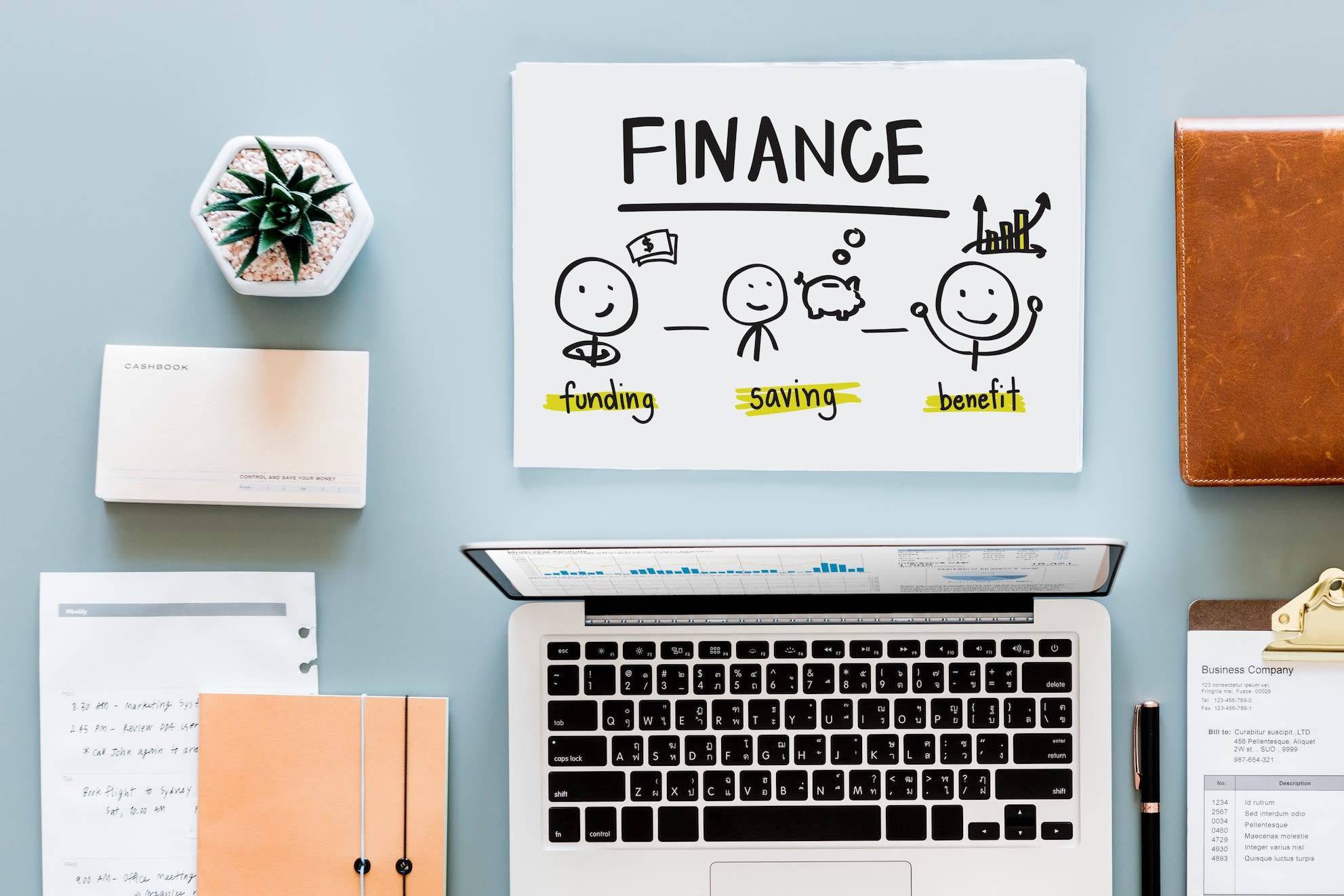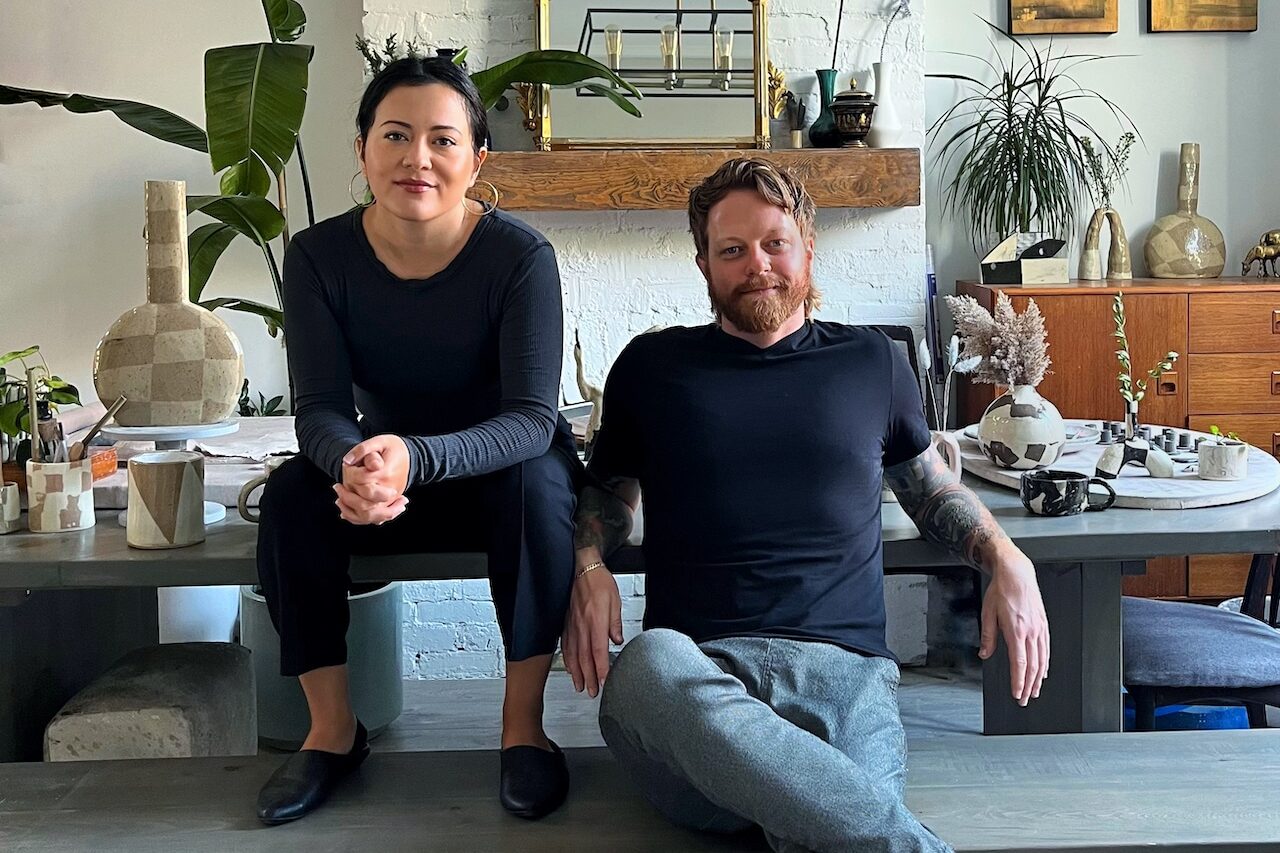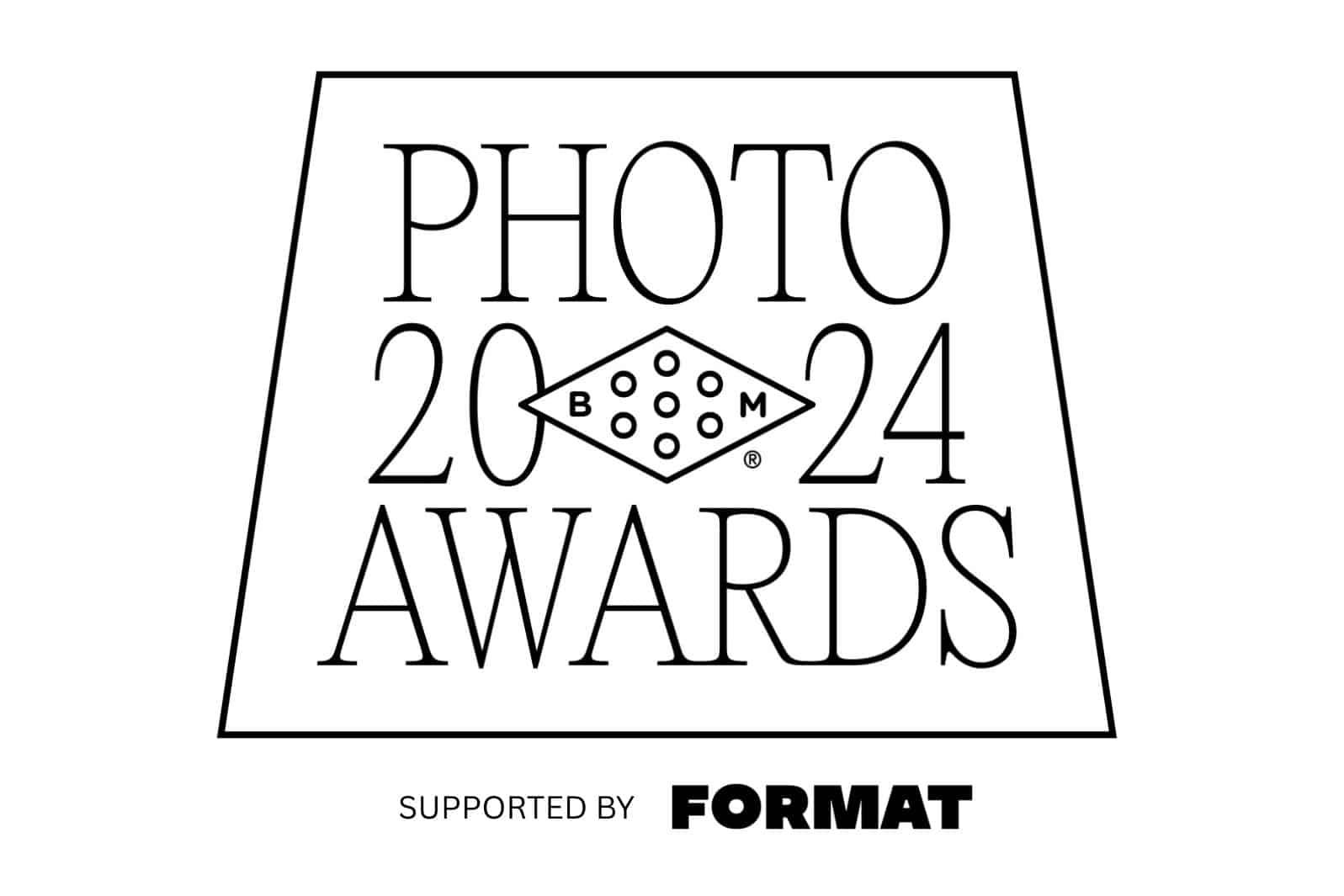Talvez não haja nada no mundo mais frustrante do que tentar colocar suas finanças em ordem, especialmente se você for um freelancer e estiver construindo um site de portfólio. As informações disponíveis não são exatamente acessíveis para aqueles que não foram educados sobre como a economia, os bancos e os impostos funcionam, e mesmo aqueles que têm um pouco de conhecimento sobre o mundo financeiro ainda se encontram constantemente sem saber como navegar melhor por ele. Mas há pessoas que estão tentando romper essas barreiras.
Ally-Jane Ayers era editora sênior do Bandcamp. Depois de algum tempo entrevistando bandas e lidando com freelancers, ela assumiu um segundo emprego na empresa como publicitária, aumentando suas responsabilidades e seu salário. Foi a primeira vez que ela realmente ganhou dinheiro como escritora freelancer e achou que seria sensato usar o que estava ganhando com cuidado. Mas não havia nenhum recurso que realmente a valorizasse como pessoa criativa. "Eu pensava: 'Sou uma pessoa inteligente e não entendo nada disso. Nem mesmo entendo por que estão me dizendo para comprar ETFs e fundos de índice. Ninguém está realmente explicando isso, e eu quero entender o que essas palavras significam'", diz ela por telefone de seu escritório em Nova York. Então, ela decidiu começar um podcast.
Esse podcast é o Moneysplained, em que Ayers se aprofunda em um novo tópico financeiro a cada episódio, apresentando-o de forma fácil de entender e conversando com especialistas que podem explicar melhor o assunto. Posso dizer a você que, como freelancer com pouca instrução sobre esse assunto, logo nos primeiros episódios senti como se um peso tivesse sido tirado de mim - como se aprender a lidar com questões financeiras não só não fosse tão assustador quanto eu pensava, mas houvesse até uma chance de ser agradável.
Quando Ayers começou o podcast, ela estava pensando em mudar de carreira no futuro, mas conheceu o contador público Shane Mason durante a produção de um episódio e, juntos, acabaram lançando o Brooklyn FI, um serviço de planejamento financeiro voltado para freelancers que se concentra em ajudar os clientes a se livrarem das dívidas estudantis.
Recentemente, Ayers também se tornou uma agente inscrita no IRS, o que lhe permite não apenas fazer declarações de imposto de renda, mas também representar clientes individuais perante o IRS. "Muitas pessoas da minha geração ainda não têm bens porque ainda estão pagando as dívidas", diz Ayers. "Elas têm ótimos empregos, estão formando famílias, as coisas estão acontecendo, mas têm essa nuvem negra sobre elas."
Aqui, ela oferece algumas informações sobre como os freealncers e os criativos podem ir em direção a um céu limpo.
O que mais perguntam a você sobre finanças pessoais?
Investimentos. Todo mundo quer falar sobre investimentos. Foi assim que comecei o podcast, e a resposta é: eu adoraria falar sobre investimentos, adoraria explicar como funciona, mas, especialmente com clientes e amigos, minhas palavras de cautela são "devagar". Antes de começarmos a investir, temos de nos certificar de que alguém está preparado para que algo ruim aconteça. Algo ruim pode ser você ter um pneu furado e não conseguir chegar ao trabalho. O proprietário do imóvel aumenta o aluguel em $600 sem explicação. Você precisa ter algum tipo de fundo, uma conta poupança, um fundo de emergência - há vários nomes diferentes - antes de começar a investir. Essa é uma resposta chata e prática, mas é muito importante que você tenha esse pequeno amortecedor. Para algumas pessoas, começar com um mês de despesas é suficiente. Em nossa prática de planejamento financeiro, gostamos de recomendar pelo menos três a seis meses de dinheiro guardado em um local de fácil acesso, e então podemos falar sobre investimentos.
Tudo se resume a estar confortável. Acho que muitas pessoas já estão investindo e nem sequer sabem disso. Nos EUA, temos 401(k) através dos empregadores. Muitas vezes, a avó, o avô, uma tia ou a mãe e o pai criaram algum tipo de fundo em algum lugar, mesmo que tenha apenas algumas centenas de dólares. Fundos para educação, coisas desse tipo. Portanto, muitas pessoas nos procuram e dizem: "Quero começar a investir", e nós dizemos: "Bem, você tem $20.000 em um 401(k), então você está investindo! Talvez você não se sinta assim". Mas acho que é muito importante que você se certifique de que o fundo de emergência está pronto antes de entrar no mercado.
O 401(k) é uma bênção e uma maldição. Ele surgiu porque as aposentadorias - em que as empresas simplesmente guardavam dinheiro para você e, quando se aposentasse, teria uma cota mensal para pagar o aluguel e comprar comida - ficaram muito caras e simplesmente desapareceram. Então, surgiram os 401(k), o que é ótimo, porque assim o indivíduo pode investir e terá o controle, e será melhor. O que é bom, mas o dinheiro é seu. Muitas vezes, as empresas igualam, portanto, se você investir 6% do seu salário, elas investirão 3% ou algo parecido. De certa forma, você tem dinheiro de graça, mas nem todas as empresas oferecem uma contrapartida. Porém, muitas empresas fazem investimentos automáticos. Elas o colocam em um fundo de aposentadoria padrão para você, no qual você preenche sua idade e o grau de risco que acha que tem, e elas simplesmente o colocam em um fundo. Se você não fizer nada, essa é uma estratégia muito boa. No momento em que você tiver alguns milhares de dólares, provavelmente será prudente analisar o fundo, conversar com um consultor financeiro e elaborar uma estratégia. Mas o 401(k) básico e simples em um fundo de aposentadoria com meta de dias é uma ótima estratégia para o sucesso.
Quando você chega ao ponto em que está pronto para começar, qual seria a primeira coisa que você diria às pessoas para fazerem?
Para começar, quando você não sabe nada - talvez esteja apenas começando com, digamos, $500 -, gosto muito de empresas como Melhoria ou Ellevest. A mídia os chamou de "robo-consultores", e eles são realmente ótimos em explicar os conceitos básicos de investimento, tornando tudo muito fácil. Eles não complicam as coisas. Você pode clicar em três botões e seu dinheiro estará no mercado.
Há algum problema que surge com frequência, com o qual as pessoas se sentem ansiosas, mas que na verdade é mais fácil de resolver do que muitos de nós pensamos?
Acho que é apenas ansiedade geral com relação à situação financeira de cada um. Muitas pessoas me procuram e dizem: 'Não tenho certeza se estou fazendo tudo certo. Li algumas coisas, meu amigo me disse isso e meu pai me disse aquilo. Você acha que está tudo bem?". Na maioria das vezes, não há problema. Um planejador ou consultor financeiro pode fazer sugestões para que você realmente aumente seu patrimônio, mas, sinceramente, o que mais causa ansiedade são os empréstimos estudantis e as dívidas esmagadoras. E você fica congelado com a ideia de tomar a decisão errada, porque é muito dinheiro. Acho que uma coisa que talvez faça as pessoas se sentirem melhor é que a maioria das decisões que você toma é reversível. Há muito medo em relação ao pagamento de impostos - 'Se eu não puder pagar, o IRS vai me mandar para a cadeia? Se eu optar pelo plano errado de pagamento do empréstimo estudantil, vou estragar tudo!" - e, na maioria das vezes, se você tomar a decisão errada, podemos voltar atrás e corrigi-la. Fazer escolhas deveria ser menos assustador em um espaço financeiro.
Se você ganha dinheiro e vive em uma sociedade, você deve pagar impostos. Há estradas pavimentadas, há departamentos de polícia. Os impostos pagam por coisas que você usa, por mais que você não queira admitir, então o IRS está lá apenas para cobrar o que você deve a eles. Muitos clientes nos procuram e dizem: 'Acho que vou para a cadeia, acho que devo um milhão de dólares, não faço a declaração há cinco anos', e isso é muito estressante. A resposta geralmente é: 'Não tem problema! Vamos declarar os cinco anos, você provavelmente deverá pagar uma multa, o IRS apresentará um plano de pagamento, as taxas de juros são muito baixas e vamos dar um jeito nisso'. O maior erro que você pode cometer é esperar e esperar e esperar. Você deve arrancar o curativo e conversar com alguém para resolver o problema.
Sei que você provavelmente aprendeu muito com o podcast, mas quais são algumas coisas que se destacam?
O que mais chamou a atenção foi o fato de o mundo das finanças pessoais ser incrivelmente complicado. Passei o último ano e meio estudando o assunto praticamente todos os dias, sem parar, absorvendo tudo o que podia, e aprendi muito, e me sinto totalmente qualificado para dar conselhos neste momento. Mas, mesmo assim, a quantidade de conhecimento necessário e as limitações especiais, limites de renda, diferentes tipos de contas de aposentadoria, é simplesmente infinita. E para uma pessoa normal que tem uma vida agitada, um emprego, família e amigos, é impossível lidar com isso. Isso realmente chama a atenção - é tão difícil ter sucesso com seu dinheiro. Acho que isso é parte da razão de muitos dos problemas da sociedade e por que não é mais tão fácil simplesmente conseguir um emprego e tentar economizar dinheiro dessa forma. Você precisa se educar de verdade e saber que os passos que está dando são os corretos.
Parece muito bem planejado para ser inacessível para a maioria das pessoas. Uma das melhores coisas que aprendi com o podcast até agora é que o dinheiro guardado embaixo do colchão não vai ajudar você no longo prazo por causa de fatores como a inflação.
O que é realmente louco nisso é que tenho 30 anos e me formei na faculdade em 2010, quando as taxas de juros eram basicamente 0%. Uma conta poupança? Não importa. Quando comecei a ganhar dinheiro e a poupar, meu dinheiro não estava rendendo nada. Essa era uma situação muito singular. As taxas de juros das contas de poupança chegaram a 10% nos anos 70, 80 e 90. Até agora, para a nossa geração, é um pouco chocante, agora que as taxas de juros estão subindo novamente e podemos obter 2%, estou correndo e sacudindo todos os meus amigos, dizendo: "Tirem seu dinheiro do Chase e coloquem-no em uma conta de alto rendimento! O momento em que nascemos e começamos a ganhar dinheiro afeta nossa percepção de como nosso dinheiro rende juros. Nesta época do ano passado, as taxas de juros eram de 1%. Elas dobraram em um ano, e foram de 0% de 2009 a 2016, praticamente.
Então, agora é a hora!
Agora é a hora de você colocar esse dinheiro em uma conta poupança de alto rendimento. Uma coisa que considero surpreendente e que aprendi muito cedo nessa jornada - é chocante a quantidade de pessoas que não sabem disso - é a maneira como as faixas de imposto realmente funcionam. Recentemente, houve muito alarde nos noticiários sobre uma alíquota máxima de imposto de renda de 70%, e todos esses tweets circulando por aí, do tipo: '70%! Você não pode tributar nossa renda dessa forma! Nos EUA, temos um sistema tributário progressivo, que todos deveriam pesquisar no Google. Mas, basicamente, isso significa que sua renda é tributada em segmentos. Assim, os primeiros $10.000 praticamente não são tributados. Os próximos $2000 são tributados a esta alíquota. Essas alíquotas máximas de imposto só se aplicam aos valores em dólares acima de um determinado valor. Portanto, neste momento, nos EUA, com a nova lei tributária, a maioria das pessoas está pagando cerca de 30% depois de ganhar $150.000. Há muitos mal-entendidos sobre a forma como as faixas de impostos funcionam, e é muito importante entender que se alguém disser: 'Estou na faixa de impostos 35%', toda a sua renda não está sendo tributada em 35%. É apenas o valor na última faixa que está sendo tributado nesse valor.
Qual é o melhor conselho que você poderia dar a alguém de um setor criativo que deseja sanar suas finanças ou começar com o pé direito?
Vá conversar com alguém. Porque você pode fazer isso sozinho, mas estará ocupado e criando ou fazendo o que quer que seja que você goste de fazer e que esteja gerando renda para você, e isso não é fácil. Acho que você pode agregar muito valor consultando um planejador financeiro ou um contador público. Consulte sua biblioteca local. Há muitos programas gratuitos diferentes. Você não precisa pagar a alguém. Acho que é importante ter outra pessoa que não o conheça para analisar sua situação financeira e poder conversar com você sobre ela e fazer recomendações.
Como você acha que os recursos de planejamento financeiro, até o momento, falharam?
Acho que eles fracassaram porque o setor, por um bom motivo, é muito regulamentado. É muito difícil dar consultoria financeira. Na verdade, não estou autorizado a dar consultoria financeira de forma independente no momento, porque ainda não tenho minha Certificação em Planejamento Financeiro (CFP), que obterei em julho deste ano. Portanto, quando você pergunta a alguém que pode parecer qualificado para uma questão financeira simples, como "Tenho um 401(k) no trabalho, em que fundo devo colocá-lo?", você pode receber a seguinte resposta: "Ah, desculpe, mas não posso dar conselhos sobre isso". Isso acontece porque o setor é muito regulamentado. É uma armadilha: a regulamentação foi criada para proteger os consumidores e eliminar as maçãs podres, mas, ao mesmo tempo, é muito difícil obter conselhos simples de pessoas que sabem a resposta. Dessa forma, acho que conseguir uma boa consultoria financeira ou apenas alguém para conversar com você sobre o assunto tem sido impossível. Acho que minha geração está um pouco cansada disso, e sites como o NerdWallet, Ela gastae As mulheres são pagas estão derrubando o muro e falando sobre isso, e dizendo que a melhor maneira de obter aconselhamento financeiro é admitir que você tem uma dúvida sobre algo.
Você acha que as pessoas que chegam ao planejamento financeiro vindas de posições criativas têm algum tipo de vantagem?
Uma coisa é que, quando você é autônomo, precisa pagar impostos sobre o trabalho autônomo. Você está no controle, portanto, tem de fornecer seu próprio plano de saúde, mas tem acesso a algumas contas de aposentadoria diferidas por impostos muito boas. Portanto, há um 401(k) que sua empresa pode oferecer se você for empregado, mas se for autônomo, você pode criar seu próprio 401(k). Isso é chamado de Solo ou Individual 401(k), e os limites de contribuição são, na verdade, muito mais altos. Portanto, se você ganhar muito dinheiro e for muito bem-sucedido no negócio que possui, poderá guardar muito dinheiro para a aposentadoria, mais do que uma pessoa que trabalha em uma empresa.
Que conselho você daria a alguém que deseja se livrar do emprego diário e dar o salto para um emprego em tempo integral com seu trabalho criativo?
Não exagere. Acho que muitas pessoas fazem isso cedo demais e não estão necessariamente preparadas para as mudanças que ocorrem. E os custos iniciais também. Muitas pessoas acham que estão trabalhando em seu emprego diário e depois conseguem um ou dois contatos de freelancer realmente interessantes, mas não se trata apenas de coletar dinheiro. Você tem que pagar impostos, tem que estabelecer seu local de trabalho, tem que pagar um contador para ajudá-lo a organizar seu negócio, tem que pagar por seus próprios custos de saúde. Há muitos custos ocultos. Portanto, meu conselho é que você comece a economizar para pelo menos seis meses de despesas de subsistência e, em seguida, dobre os custos iniciais que você acha que terá. Porque vemos muitos freelancers que saltam de um emprego que paga bem, mas que não necessariamente amam, para o de freelancer e ficam sem dinheiro no terceiro mês. Você precisa ser capaz de sobreviver àqueles momentos em que não há trabalho por algumas semanas. Ser freelancer é isso, são altos e baixos e fluxos de renda inconsistentes, o que exige muito planejamento, e ter essa reserva é muito importante para o sucesso.
Eu consegui. É realmente empolgante - seu negócio começa a decolar e você percebe: "Ah, não posso continuar fazendo malabarismos com meu emprego de tempo integral e essa atividade paralela que agora está gerando renda". Mas nesse pequeno intervalo, quando você estiver pensando em fazer a mudança, talvez valha a pena diminuir o ritmo do trabalho freelance por um ou dois meses e manter as coisas consistentes enquanto você acumula essas economias. Assim, você poderá fazer a mudança de forma inteligente e com um plano sólido.
Você quer mais conselhos para trabalhar como freelancer?
Como você pode arrasar em seu negócio paralelo
Estratégias de gerenciamento de e-mail sem problemas para criativos
8 habilidades de gerenciamento de tempo que todo freelancer deve dominar












